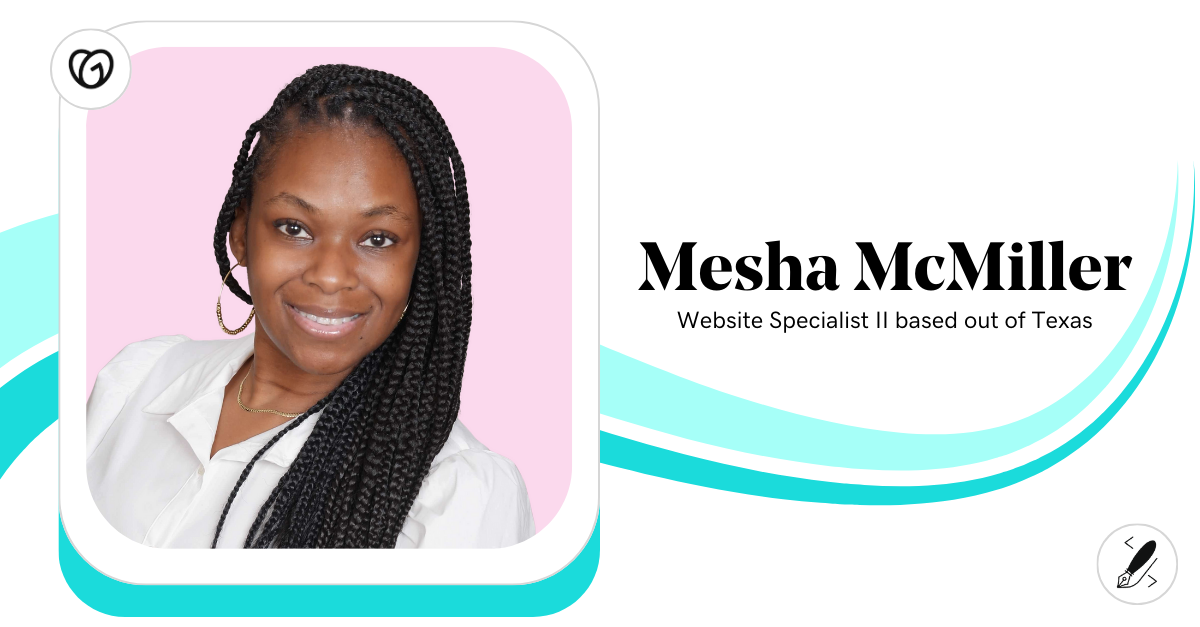Every good business owner deserves their very own professional email address. In fact, having one comes with its fair share of business-boosting benefits.
Armed with a professional email address, you will create an impactful image that will win over potential clients, colleagues, or employees and ultimately—boost your professional success.
Did you know that 65% of people feel that a company or branded email address is far more credible and trustworthy than a regular personal email address? That’s a lot of people.
If you’re thinking about setting up your professional email address but don’t know where to start, don’t worry—we’ll show you how right here in this essential guide.
Ready? Let’s get started.
How to create a professional email address
Customers are nine times more likely to choose a business with a professional email address. That means if you send a communication using a free email address, you actually decrease your chances of gaining new customers, because they may think your business is not well-established.
To choose a professional email address that reflects your business and what your brand’s all about, here are a few things to consider:
- Avoid numbers and special characters, as they can cause visual confusion and look messy.
- Go with a name and email address combination that’s consistent with your domain name and reflects your brand.
- Keep it as short and memorable as possible.
- Choose an email domain that will remain relevant and scale with your business.
In addition to following these essential tips, you should also go with an established and reputable email provider like Microsoft 365 with GoDaddy.
When considering different email providers and plans, some features to look out for include:
- Robust security features (data protection; protection against spam/malware/phishing attempts).
- The option for multiple email aliases.
- Plentiful storage.
- Good customer support.
Parts of a professional email address
Now that you know some basics of choosing a professional email address, let’s dig a little deeper into the anatomy for a moment.
To help you get an understanding of how your custom email address might look from a visual perspective, here are the key elements explained:
- Username: This outlines your identity and usually comes in the form of a name (e.g. Sydney) or a department (e.g. marketing).
- @ symbol: This is the symbol that separates the user name or identifier from the domain name—which brings us to the next part.
- Domain: This part is unique to your business or the domain and the aspect of your professional email address that will set you apart from the crowd.
- Top-level domain: Commonly abbreviated to TLD, this is your domain extension. This could be a .com, .net, .org, etc.

Tips for a good business email address
Earlier, we discussed some best practices for choosing a professional email address that gets results. Now that you know the key parts of a professional business email address, let’s dig a little deeper.
Keep it short
Much like your email marketing copy's length, you should ensure your custom professional email address is short and sweet.
Ideally, your identifier should be no more than three words max. And your custom domain should not only be related to your brand but also snappy and easy to remember.
Generally, you should aim to make your professional email address between 20 and 40 characters long.
Bonus tip: Make sure every element of your email address is easy to spell. If you have to scratch your head trying to spell your own email address, you can bet that your customers will, too. This will cause confusion and frustration, which is not good for business.
Use your name, initials, or both
While using your first name (or the first names of your employees) alone is personable and works well for small businesses, you might run into inconsistencies or email duplication issues as you scale.
The good news is that you can keep things personal and professional by using different combinations of your first name, last name, and initials.
Here are a few examples of different username combinations for someone named Sid A. Chase:
- First name: sid@examplebigbusiness.tld
- First name + Last name: sidchase@examplebigbusiness.tld
- First initial + Last name: schase@examplebigbusiness.tld
- First name + Last initial: sidc@examplebigbusiness.tld
- First and middle initials + Last name: sachase@examplebigbusiness.tld
Use the department name
Another handy professional email hack is to use the department name. This will make your business look well-established and improve the customer experience by telling them exactly where to aim their query, which is good for business.
Again, here are some examples for your viewing pleasure:
- info@examplebigbusiness.tld
- legal@examplebigbusiness.tld
- support@examplebigbusiness.tld
What to avoid with business email addresses
Now you know what to include in a professional email address, let’s look at what to avoid at all costs.
Numbers: Numerics can look messy and cause visual confusion. In addition, when said aloud, it can create uncertainty about whether the number is spelled out or the actual digit.
- jdoe1@examplebigbusiness.tld
Punctuation/symbols (periods, dashes, underscores): These can make typing out your email address laborious and clunky. In addition, it makes it more difficult for customers to remember the email.
- john.doe@examplebigbusiness.tld
- john-doe@examplebigbusiness.tld
- john_doe@examplebigbusiness.tld
Personal nicknames or inside jokes: These do not benefit potential clients, colleagues, or customers and look unprofessional. This could damage your reputation and create a lack of trust.
- partyboy@examplebigbusiness.tld
- johnlovesmoney@examplebigbusiness.tld
Random combinations: Just...no. Don't do it.
- xyz123abc@examplebigbusiness.tld
Free vs paid business email accounts
Now that you know how to create a professional email address that sings, let’s look at the key differences between free and paid business accounts.
Security and privacy
In our hyper-connected digital age, the threat of cybercrime has never been more pressing. Free email accounts are more of a target for identity theft and phishing attacks as they tend to slip through the net more easily.
Without robust security and privacy features like water-tight end-to-end encryption and two-factor authentication, having a free email account will make you far more vulnerable to attacks.
Professional paid accounts like Microsoft 365 from GoDaddy typically come with a mix of robust security features, including:
- Advanced security settings, including spam box management.
- Quarantined messages for suspect emails or emails from outside the organization.
- URL and content scanning and verification.
- Robust encryption and malware.
- Exceptional customer support and an emergency inbox you can use in the event of a breach or attack.
Storage
Most free email providers, like Yahoo! or Gmail, have limited storage options. This means that once you hit the provider’s content storage limit, you have to start deleting emails or saving essential pieces of information elsewhere (either that or you’ll have to payingl fees for storage add-ons).
This can be a stressful and time-consuming process, especially when you’re juggling a million professional plates.
With a paid business email account that suits your specific needs, you get between 10 and 50GB of storage capacity, around five to 10 times what you get with a free account.
Collaboration tools
Free email accounts may have collaboration and project management limitations compared to paid professional email accounts. With a free account, you can send and receive multiple emails, set out-of-office messages, communicate with your calendar, and arrange your content into labeled folders. But that’s about it.
With a paid professional email account, you can do so much more from one central hub. With GoDaddy and Microsoft 365, you can manage multiple user accounts, share files, set up devices, and use various collaborative Office tools from an easy-to-use dashboard.
Not only does this make team communication and project management more seamless, but it also makes managing your business email activities time-effective and transparent.
Branding opportunities
We’ve already mentioned this point, but it doesn’t hurt to bring it up again. When creating a brand that stands out from the crowd and builds trust, free email accounts aren’t quite up to scratch.
A free email account looks unprofessional and gives the impression that you’re not serious about your business. Having the likes of a ‘Yahoo’, ‘Hotmail’ or ‘Gmail’ domain name at the end of your address will not cement brand awareness. And it will make you appear amateur.
On the flip side, as we mentioned earlier, having a professional email address will not only be consistent with the rest of your branding, but it will build trust and stand out in your potential clients’ or customers’ minds.
Related: Rise above the noise — 4 ways to leverage AI in personal branding
Free vs. paid business email account comparison overview
| Pros | Cons |
|---|---|
| Provides credibility and brand representation. | Monthly fee |
| Robust security and encryption options. | |
| The ability to create multiple aliases and manage multiple files or accounts from one central location. | |
| Provides excellent customer support. |
Generic email
| Pros | Cons |
|---|---|
| Free | Lack of credibility and brand representation. |
| Limited storage. | |
| Scans your emails and displays ads. | |
| No dedicated support team. Support is typically found through forums or a knowledge base. This can be stressful and time-consuming. | |
| Limited security and privacy features, leading to a lack of trust and an increased threat of cyber attacks. |
Set up a business email or migrate your current email to GoDaddy
Steps to set up a new email
If you haven’t established any email for your business yet, setting up a business email with GoDaddy and Office 365 is swift and simple. By following the below steps, your new professional business email address will be ready in no time.
- Purchase a Professional Email & Microsoft 365 plan.
- Access your email product from your GoDaddy dashboard.
- Enter your domain.
- Fill out your email information.
- Complete your setup.
For a full step-by-step explanation of how to get set up, check out our official guide on how to create a custom email address with your domain name.
Oh, and a quick FYI. If you get stuck in any way, you reach out to our trusted support team for all of the help and advice you need. We’re here to help.
Migrating an existing email account (for FREE!)
If you already have email with another provider, GoDaddy can help you seamlessly migrate everything over to one of our affordable email plans. With GoDaddy, the migration process is a free service that we are happy to provide you. You just need to call our migration experts at 480- 463-8835. They will do all the work for you – transferring your domain-based email address, contacts, folders, history, etc. to the affordable email plan of your choice. Our migration experts handle all the migration on the back end, which means there’s no disruption to your professional email account or to your productivity.
Business Email FAQ
How do I create an email address for my business?
There are just a few simple steps to set up your very own business email address and start accelerating your commercial success:
- Register a domain name (skip this step if you already have a domain).
- Buy an email plan that suits your business needs.
- Follow our step-by-step guide for setting up your very own custom business email.
What are examples of professional emails?
A professional email address should be domain-based and be consistent across the company - for example, some variation of the sender’s name or department - so that potential customers can easily remember or identify the appropriate email contact. You should avoid using special characters or numbers and tacky insider jokes. Here are some practical examples:
| Professional | Unprofessional |
|---|---|
| jane@examplebigbusiness.tld | mybusiness@freeemail.tld |
| jdoe@examplebigbusiness.tld | janerocks@examplebigbusiness.tld |
| sales@examplebigbusiness.tld | sales123@examplebigbusiness.tld |
Can I get a free business email?
Business email accounts are not typically free. Some companies may offer a free version of their paid email offerings, but those free accounts typically come with limitations in storage or functionality. You may also be able to get a free trial (with all features and functionality) to test out a service before fully onboarding. GoDaddy, for example, provides a free 30-day trial of Professional Email, available exclusively through our AI solution GoDaddy Airo.
Can Gmail be used for a professional email?
A free Gmail account will not deliver when it comes to standing out and boosting your brand awareness. If you are a budding business owner looking to scale, using a custom domain-based email address will enhance your professional image and branding compared to using a generic email provider.
Why should I get a professional email from GoDaddy?
GoDaddy offers robust email plans that can help your business succeed online. Some of the top reasons people choose GoDaddy professional email include:
Award-winning customer support. With GoDaddy, you’ll always have access to our award-winning customer support team who can help you with the initial setup or migration of your email and are always on standby (like a personal IT team, just for you).
Everything in one place. If you already have a domain or website with us, setting up your email with GoDaddy gives you the advantage of managing all your online presence in one just place. Trust us, it can be a true time saver for you.
Robust security and storage. You can trust on GoDaddy to always prioritize the security of your email, providing you with proactive protection against spam and malware. In addition, we offer different storage options to accommodate the needs of your growing business.
See for yourself all that GoDaddy offers. Check out our professional business email today.






